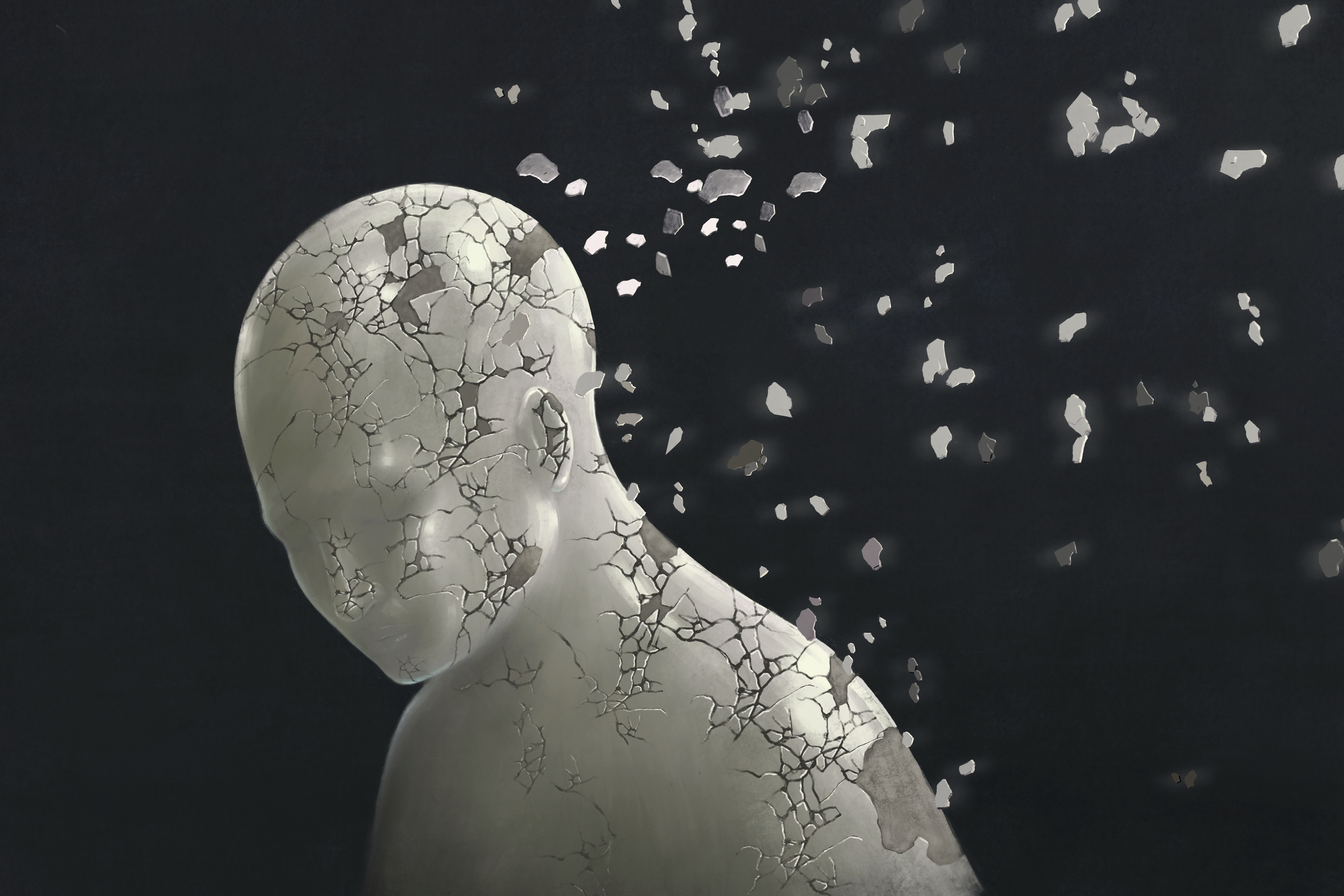How Call Her Daddy made bank off of lost young women.
Let’s Stay In

A troubling trend of social isolation is afflicting young adults globally.
In Japan, social withdrawal among young men is now so severe that the Japanese have a very specific term for it: hikikomori. Hiki means “to withdraw,” and komori means “to remain inside.” At least 1.5 million Japanese people, many of whom are young men in their twenties and thirties, have completely withdrawn from society.
They don’t date; they don’t mate; they don’t work; and they don’t socialize. In short, they refrain from doing anything that requires them to leave their hyper-isolated chambers.
Many of these young males are hurting—financially, spiritually, and psychologically.
Up until very recently, hikikomori was considered a culture-bound syndrome, a problem unique to Japan. That is no longer the case. Hikikomori is now a global phenomenon, observed across the world regardless of culture—from Asia to Europe to the United States.
In the U.S., as in Japan, young men are retreating en masse. We are witnessing the rise of the American hikikomori. This sociocultural phenomenon involves a refusal to cooperate or engage with other members of society. Something needs to be done, and fast, because the negative outcomes are piling up.
American males are far more likely to commit suicide than American females by a factor of nearly four. “Deaths of despair,” mostly meaning suicide or drug overdose, have risen rapidly among young and middle-aged men, actually causing a decline in life expectancy. Rather staggeringly, 60% of American men in their twenties are single, and only 50% of single men are seeking a romantic relationship.
This is not normal behavior, and it’s certainly not healthy.
To compound matters, as the political economist Nicolas Eberstadt recently warned, seven million prime working-age men (those between the ages of 25 and 54) are jobless and have no intention of finding work.
What do these men do with their free time? According to Eberstadt, they spend an average of 2,000 hours per year glued to screens. To put that number in perspective, the average American employee spends about the same amount of time working.
To compound matters, 50% of the seven million consume copious amounts of prescription drugs and/or weed, and two-thirds live in a household that receives at least one disability payment every month.
Very few of these men are rolling in riches. Instead, they appear to have just enough to get by: just enough money, just enough drugs, and just enough distractions (porn, video games, etc.). They are in many ways happily sedated, comfortably numb.
This is a major crisis. But the crisis must be viewed through a broader lens.
An increasing number of Americans have absolutely no friends. In the 90s, millions of Americans had at least ten friends.
The friendless problem is one that affects men more than women, as males tend to have a larger community of friends early in life and drift away from this community as they get older.
The older men get, it seems, the further they retreat into isolation. Isolating oneself from broader society is, in many ways, an early death sentence. As the psychologist Elizabeth Gilbert recently wrote, those without close friends are far likelier to die younger.
Social isolation destroys both the brain and the body. Gilbert references this meta-analysis that shows how feelings of social isolation and loneliness have the same effects on the body as both obesity and smoking 15 cigarettes a day.
The academic Nader Elhefnawy, who has discussed the phenomenon of hikikomori in the United States in great detail, believes that, going forward, an increasing number of American men (and women) will isolate themselves from society.
“It seems to me there are many factors at work here,” said the Florida professor.
The issue of economics, he added, “is bound up with people having less of the margin of economic security that enables them to have relationships, families, etc. (e.g., being able to afford housing), without which isolation is more common.”
“In the absence of things getting better,” said. Elhefnawy, “individuals can do little but deal with their problems individually, with some opting for withdrawal, including the extreme form of this that is becoming hikikomori.”
Unlike Japan, where hikikomori has been a problem for years, the rise of the reclusive American male is a rather recent trend—and one that we should expect to get much more profound in the years to come. That’s because hikikomori stems from psychological issues like depression and anxiety, both of which are on the rise in the U.S. Autism also appears to play a significant role in the unwillingness to participate in broader life. This developmental disability is also on the rise in the U.S. Then, of course, there is the sizable matter of sexlessness and the rise in lonely, young people desperate for intimacy. Interestingly, there appears to be a very strong link between declining testosterone levels and social withdrawal. In recent years, testosterone levels of American men have plummeted.
Hikikomori comes with significant costs, both for the individuals affected and broader society. In Japan, for example, extreme recluses have carried out some rather brutal attacks in recent years. In 2019, a young man stabbed 17 schoolgirls and two adults at a bus stop near Tokyo. All this pent up aggression and despair must go somewhere. As Chris Williamson, a man who has discussed the problem of reclusiveness in great detail, has warned, an increasing number of sexless, aimless, thoroughly disillusioned young men is a recipe for disaster and societal disintegration. Humans are social creatures. It is not normal, nor is it recommended, to wall oneself off from society.
All this leaves us asking one question: What, if anything, can be done to help these desperate souls?
In South Korea, some 350,000 people between the ages of 19 and 39 are “lonely or secluded” according to a Ministry of Gender Equality and Family (MOGEF) report.
Forty-percent of the affected begin their isolation in their adolescent years.
In an effort to address the crisis, the South Korean government is paying young recluses a monthly sum of 650,000 Korean won (roughly $500) to re-enter society.
To many Americans, this idea seems preposterous, and for good reason.
Throwing money at a deep-rooted psychological problem is not wise. There needs to be an intrinsic desire to get better.
For many of these hermits, life has clearly lost all meaning. Perhaps for some of those most affected there was never any meaning there to begin with. They are starved of human connection, purpose, and meaning; a few hundred dollars each month is unlikely to heal these psychic wounds.
For a more sensible solution, it’s best to look to Italy, a country intimately associated with deep, social bonds. Or at least that used to be the case.
Today, however, Italy is also in the midst of a hermit-driven crisis.
As Matthew Zanon and his colleagues at Sakido, an organization dedicated to reintegrating reclusive individuals back into society, have noted, an increasing number of young Italians—again, mostly young males—no longer engage socially.
Zanon, a clinical psychologist by training, refers to the phenomenon as a “social retreat.” In an attempt to reintegrate these reclusive souls, Zanon and his colleagues run various social programs across the country.
In addition to offering online services, the psychologists provide listening desks and training workshops for those who find themselves suffering in silence.
To date, the organization has helped a number of young men (and women) to re-enter society and to find once again some sense of purpose. Workshops and community events explicitly designed to bring disillusioned males together certainly appear to be a wiser approach than handing out cash rewards.
As a global phenomenon, this epidemic of loneliness demands organized, mass action to reintegrate people into social life. Even promoting pick-up basketball games, neighborhood cookouts, or all-night Monopoly sprees would be better than nothing. Otherwise the accelerating atomization of society will result in a collapse of all bonds and lead us into a new, frightening post-political era.
The American Mind presents a range of perspectives. Views are writers’ own and do not necessarily represent those of The Claremont Institute.
The American Mind is a publication of the Claremont Institute, a non-profit 501(c)(3) organization, dedicated to restoring the principles of the American Founding to their rightful, preeminent authority in our national life. Interested in supporting our work? Gifts to the Claremont Institute are tax-deductible.
Affluent hypocrisy has split America in two.
OnlyFans and the Sordid Underbelly of our Ruling Class
Connecting the dots the experts won’t
Ladies, go from cheap date to soul mate with this one neat trick.
A generation grows tired of the tiresome






